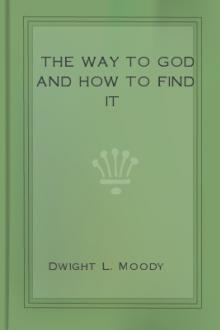Quit Your Worrying! by George Wharton James (classic books for 12 year olds txt) 📖

- Author: George Wharton James
- Performer: -
Book online «Quit Your Worrying! by George Wharton James (classic books for 12 year olds txt) 📖». Author George Wharton James
They heard: 'For over a month and the sleeves were too see you again at Mrs. Elliott's I'm pouring there from four I've got to dismiss one with plum-colored bows all along five dollars a week and the washing out and still impossible! I was there myself all the time and they neither of thirty-five cents a pound for the most ordinary ferns and red carnations was all they had, and we thought it rather skimpy under the brought up in one big braid and caught down with at Peterson's they were pink and white with—' … 'Oh, no, Madeleine! that was at the Burlingame's.' Mrs. Sandworth took a running jump into the din and sank from her brother's sight, vociferating: 'The Petersons had them of old gold, don't you remember, with little—'
The doctor, worming his way desperately through the masses of femininity, and resisting all attempts to engage him in the local fray, emerged at length into the darkened hall where the air was, as he told himself in a frenzied flight of imagination, less like a combination of a menagerie and a perfume shop. Here, in a quiet corner, sat Lydia's father alone. He held in one hand a large platter piled high with wafer-like sandwiches, which he was consuming at a Gargantuan rate, and as he ate, he smiled to himself.
'Well, Mr. Ogre,' said the doctor, sitting down beside him with a gasp of relief; 'let a wave-worn mariner into your den, will you?'
Provided with an auditor, Judge Emery's smile broke into an open laugh. He waved the platter toward the uproar in the next rooms: 'A boiler factory ain't in it with woman, lovely woman, is it?' he put it to his friend.
'Gracious powers! There's nothing to laugh at in that exhibition!' the doctor reproved him, with an acrimonious savagery. 'I don't know which makes me sicker; to stay in there and listen to them, or come out here and find you thinking they're funny!'
They are funny!' insisted the Judge tranquilly. 'I stood by the door and listened to the scraps of talk I could catch, till I thought I should have a fit. I never heard anything funnier on the stage.'
'Looky here, Nat,' the doctor stared up at him angrily, 'they're not monkeys in a zoo, to be looked at only on holidays and then laughed at! They're the other half of a whole that we're half of, and don't you forget it! Why in the world should you think it funny for them to do this tomfool trick all winter and have nervous prostration all summer to pay for it? You'd lock up a man as a dangerous lunatic if he spent his life so. What they're like, and what they do with their time and strength concerns us enough sight more than what the tariff is, let me tell you.'
'I admit that what your wife is like concerns you a whole lot!' The Judge laughed good-naturedly in the face of the little old bachelor. 'Don't commence jumping on the American woman so! I won't stand it! She's the noblest of her sex!'
'Do you know why I am bald?' said Dr. Melton, running his hand over his shining dome.
'If I did, I wouldn't admit it,' the Judge put up a cautious guard, 'because I foresee that whatever I say will be used as evidence against me.'
'I've torn out all my hair in desperation at hearing such men as you claim to admire and respect and wish to advance the American woman. You don't give enough thought to her—real thought—from one year's end to another to know whether you think she has an immortal soul or not!'
Later Lydia's husband insists that they give a dinner.
It was to be a large dinner—large, that is, for Endbury—of twenty covers, and Lydia had never prepared a table for so many guests. The number of objects necessary for the conventional setting of a dinner table appalled her. She was so tired, and her attention was so fixed on the complicated processes going on uncertainly in the kitchen, that her brain reeled over the vast quantity of knives and forks and plates and glasses needed to convey food to twenty mouths on a festal occasion. They persistently eluded her attempts to marshal them into order. She discovered that she had put forks for the soup—that in some inexplicable way at the plate destined for an important guest there was a large kitchen spoon of iron, a wild sort of whimsical humor rose in her from the ferment of utter fatigue and anxiety. When Paul came in, looking very grave, she told him with a wavering laugh, 'If I tried as hard for ten minutes to go to Heaven as I've tried all day to have this dinner right, I'd certainly have a front seat in the angel choir. If anybody here to-night is not satisfied, it'll be because he's harder to please than St. Peter himself.'
During the evening:
Lydia seemed to herself to be in an endless bad dream. The exhausting efforts of the day had reduced her to a sort of coma of fatigue through which she felt but dully the successive stabs of the ill-served unsuccessful dinner. At times, the table, the guests, the room itself, wavered before her, and she clutched at her chair to keep her balance. She did not know that she was laughing and talking gaily and eating nothing. She was only conscious of an intense longing for the end of things, and darkness and quiet.
When it was all over and her husband was compelled to recognize that it had been a failure, his mental attitude is thus expressed:
He had determined to preserve at all costs the appearance of the indulgent, non-critical, over-patient husband that he intensely felt himself to be. No force, he thought grimly, shutting his jaws hard, should drag from him a word of his real sentiments. Fanned by the wind of this virtuous resolution, his sentiments grew hotter and hotter as he walked about, locking doors and windows, and reviewing bitterly the events of the evening. If he was to restrain himself from saying, he would at least allow himself the privilege of feeling all that was possible to a man deeply injured.
And that night Lydia felt for the "first time the quickening to life of her child. And during all that day, until then, she had forgotten that she was to know motherhood." Can words more forcefully depict the worry of the squirrel-cage than this—that an unnecessary dinner, given in unnecessary style, at unnecessary expense, to visitors to whom it was unnecessary should have driven from her thought, and doubtless seriously injured, the new life that she was so soon to give to the world?
Oh, men and women of divine descent and divine heritage, quit your squirrel-cage stage of existence. Is life to be one mere whirling around of the cage of useless toil or pleasure, of mere imagining that you are doing something? Work with an object. Know your object, that it is worthy the highest endeavor of a human being, and then pursue it with a divine enthusiasm that no obstacle can daunt, an ardor that no weariness can quench. Then it is you will begin to live. There is no life in worry. Worry is a waste of life. If you are a worrier, that is a proof you (in so far as you worry) do not appreciate the value of your own life, for a worthy object, a divine enthusiasm, a noble ardor are in themselves the best possible preventives against worry. They dignify life above worry. Worry is undignified, petty, paltry. Where you know you have something to do worth doing, you are conscious of the Divine Benediction, and who can worry when the smile of God rests upon him? This is a truism almost to triteness, and yet how few fully realize it. It is the unworthy potterers with life, the dabblers in life-stuff, those who blind themselves to their high estate, those who are unsure of their footing who worry. The true aristocrat is never worried about his position; the orator convinced of the truth of his message worries not as to how it will be received; the machinist sure of his plans hesitates not in the construction of his machinery; the architect assured of his accuracy pushes on his builders without hesitancy or question, fear, or alarm; the engineer knowing his engine and his destination has no heart quiver as he handles the lever. It is the doubter, the unsure, the aimless, the dabbler, the frivolous, the dilettante, the uncertain that worry. How nobly Browning set this forth in his Epilogue:
What had I on earth to do
With the slothful, with the mawkish, the unmanly?
Like the aimless, helpless, hopeless, did I drivel
—Being—Who?
One who never turned his back but marched breast forward,
Never doubted clouds would break,
Never dreamed, though right were worsted, wrong would triumph,
Held we fall to rise, are baffled to fight better,
Sleep to wake.
No, at noonday in the bustle of man's worktime
Greet the unseen with a cheer!
Bid him forward, breast and back as either should be,
'Strive and thrive!' cry 'Speed,—fight on, fare ever
There as here!'
And this is not "mere poetry." Or rather it is because it is "mere poetry" that it is real life. Browning had nearly seventy years of it. He knew. Where there are those to whom "God has whispered in the ear," there is no uncertainty, no worry. The musician who knows his instrument, knows his music, knows his key, and knows his time to play never hesitates, never falters, never worries. With tone clear, pure, strong, and certain, he sends forth his melodies or harmonies into the air. Cannot you, in your





Comments (0)